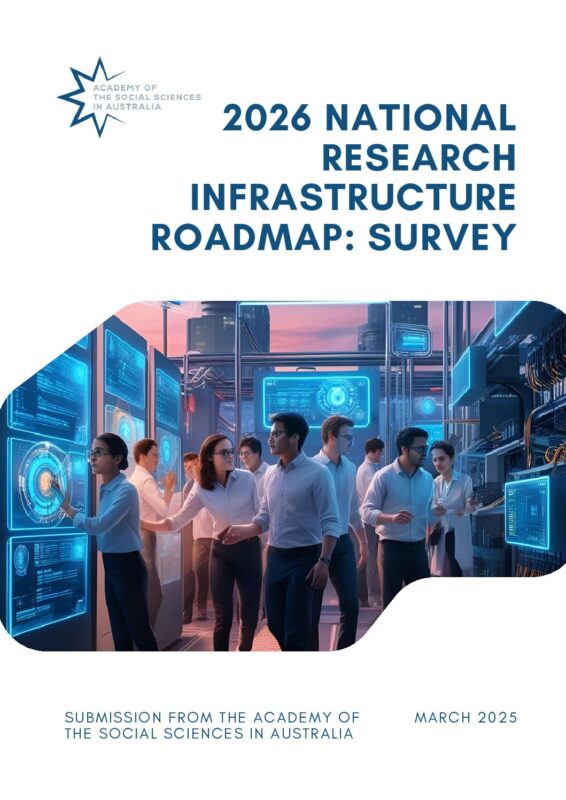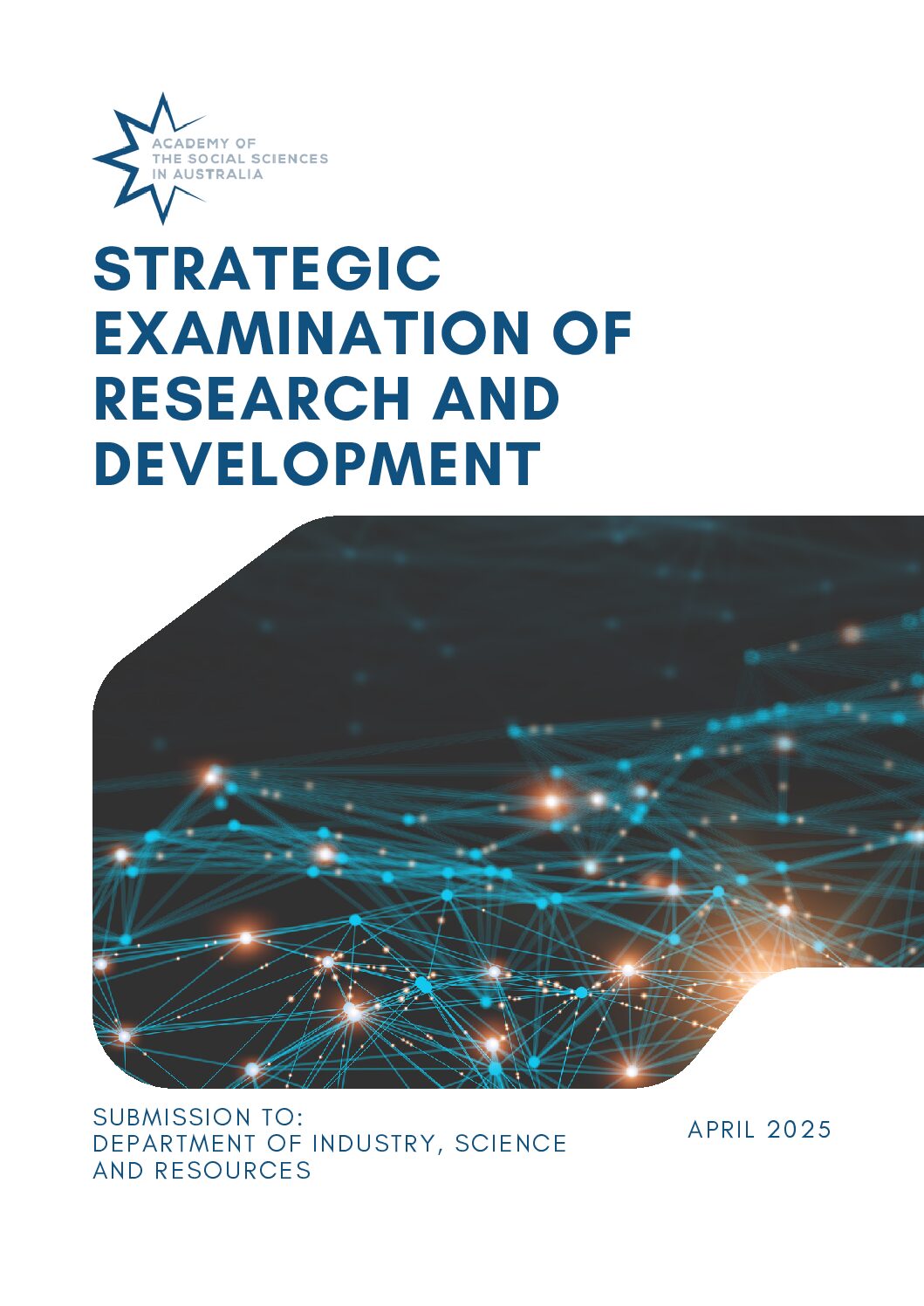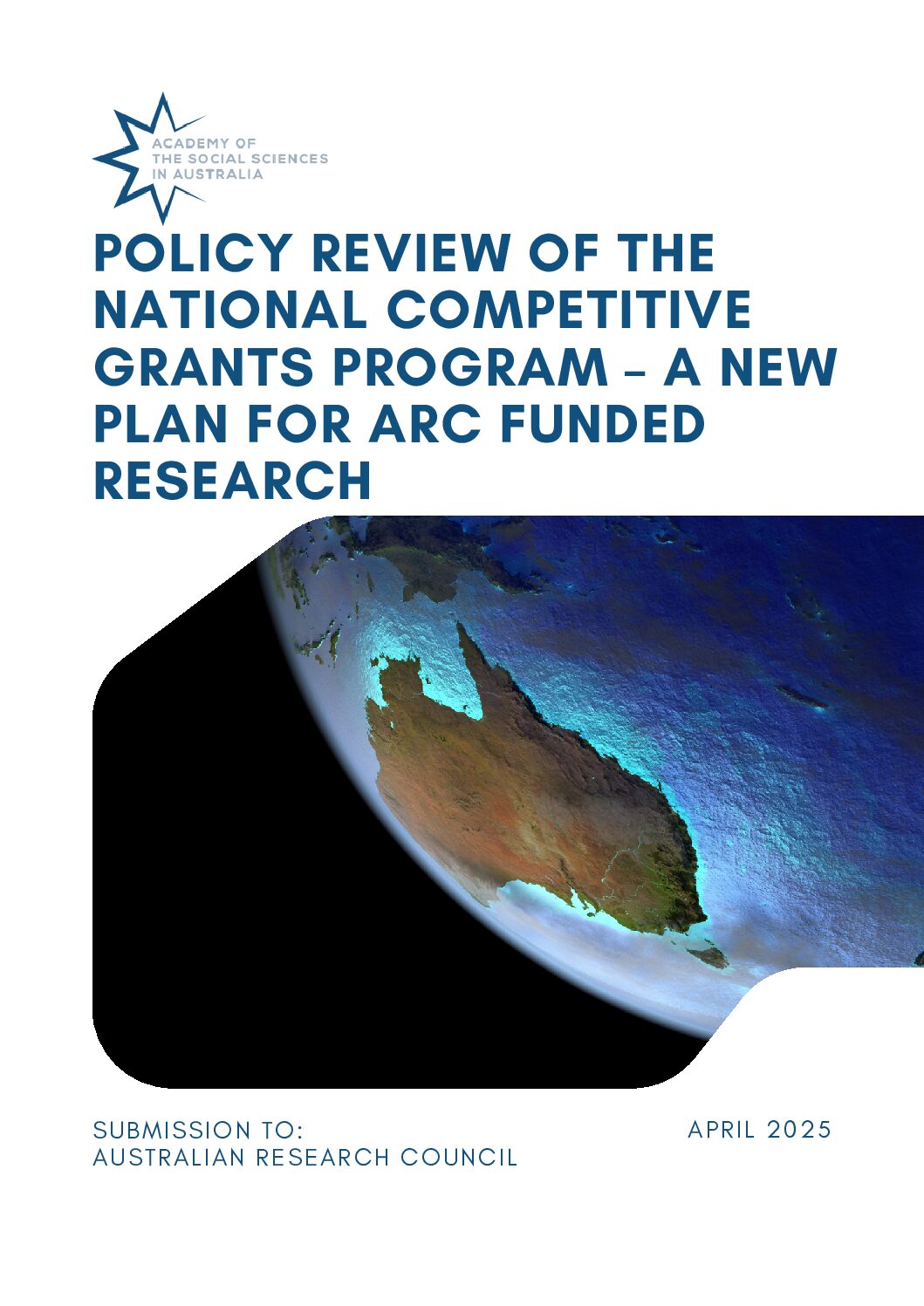22 February, 2022
Overview
The Academy of the Social Sciences in Australia (the Academy) supports the amendments to the Australian Research Council Act (2001) proposed in the Australian Research Council Amendment (Ensuring Research Independence) Bill 2018.
In particular, the Academy supports the proposed amendment to subsection 51(1) of the Act that removes the ability of the Minister to veto recommendations for funding of projects made by the Australian Research Council (ARC) CEO. This change is consistent with the Academy’s position on the primacy of peer-review in the determination of research funding. This change would also bring Australia into alignment with the practice of research funding bodies in the UK, Europe and North America.
It would also serve to bring the Australian Research Council Act 2001 more closely in line with the National Health and Medical Research Council Act 1992 that, although not precluding Ministerial direction on funding of particular projects, vests decision making responsibility with the CEO as advised by the NHMRC Council and Principal Committees.
With respect to the amendments outlined in the Bill, the Academy notes that these changes would not limit the ability of the Minister to set priorities and provide guidance to the ARC CEO on processes and broad directions. Importantly, however, they would reassure Australia’s research community and the ARC of the importance and integrity of the Council’s funding programs and processes. This reassurance and trust is critical to ensure the continued participation of thousands of researchers and hundreds of thousands of person-hours each year in the process of developing and reviewing proposals for ARC funding programs.
Finally, the Academy notes that while the proposed amendments would serve an important function, there remain numerous challenges and potential inconsistencies and inefficiencies in the Australian research ecosystem. The Academy recommends that the next Australian government consider a full review of Australia’s research ecosystem with a view to identifying opportunities to further enhance and processes and systems to enable even better value to taxpayers from publicly funded research.
Attachments
Attached to this submission for reference are statements issued in early-2022 by the Academy of the Social Sciences in Australia, and jointly by Australia’s five learned Academies with the Australian Council of Learned Academies.
Background: the ARC and Australia’s university sector
The ARC is the primary funding body for the majority of Australia’s university researchers not working in the health and medical sciences. These highly skilled and highly trained researchers work collaboratively with colleagues in Australia and across the world to advance our understanding of a broad range of questions and challenges in the Science, Technology, Engineering and Mathematics disciplines, as well as in the Humanities, Arts and the Social Sciences. Collectively, the work of these researchers over many decades have helped Australian businesses, governments, cultural and social institutions and people to enjoy a high standard of living, and to compete and collaborate effectively with much larger countries and economies on the world stage.
The research funded by taxpayers through the ARC covers both applied research with direct application to industry and other end-users, as well as theoretical and ‘blue-sky’ research aimed at understanding complex natural and social phenomena in ways that may not have immediate commercial value.
Whether applied or theoretical in nature, however, Australia’s world-class publicly funded research has enormous flow-on benefits in ensuring the global reputation and ranking of our universities, and the quality and currency of knowledge of our university teachers. These two factors underpin the quality of university-level training of a large proportion of Australia’s domestic workforce, as well as contributing to the value proposition of Australian universities to international students. This is particularly relevant as Australia competes to regain the estimated $40B annual economic benefit of the 550,000 fee-paying international students who chose Australian universities for their education prior to the pandemic.
The critical importance of peer review
Applications for Australian Research Council funding require many months of preparation and involve a significant and detailed proposal of at least 40 and sometimes several hundred pages in length, depending on the scheme. Applicants for funding are required to demonstrate not only the value of their proposed research to the Australian community, but also the way in which advance knowledge, and the experience, skills and capacity of the researcher or research team to successfully manage the work as outlined.
Each of the thousands of proposals received by the ARC each year are reviewed against eligibility criteria by ARC staff before being assigned to independent experts in the specific research being proposed for an assessment of merit, value and feasibility.
The proposals and the independent reviews are then assessed in further detail by expert committees drawn from the ARC’s college of experts who, over the course of a week or more of moderation meetings, arrive on recommendations of the very best research proposals for funding.
This process typically results in around 50% of proposals being deemed ‘eligible for funding’. However, the volume of proposals deemed eligible for funding always outweighs the amount of funding available through the ARC schemes, and a further shortlisting process results leaves only the top 15-25% of proposals being recommended for funding by the ARC CEO.
This multi-stage peer review process involves months of detailed assessment and examination, and the competitive nature of the funding and the critical principles of value and transparency in allocation of taxpayers’ money ensures that only the most meritorious and valuable proposals are recommended for funding.
This level of rigour and focus in review is long established in both Australia and other countries, and ensures a high-level of checks and balances to ensure taxpayers’ money is not awarded to spurious or wasteful research.
Amending the Act as has been proposed in the Australian Research Council Amendment (Ensuring Research Independence) Bill 2018 will ensure the continued integrity of these processes, and without diluting Ministerial oversight of the ARC and its funding schemes, will ensure that the detailed assessment and review of research remains in the hands of those with the time and expertise to do so.



